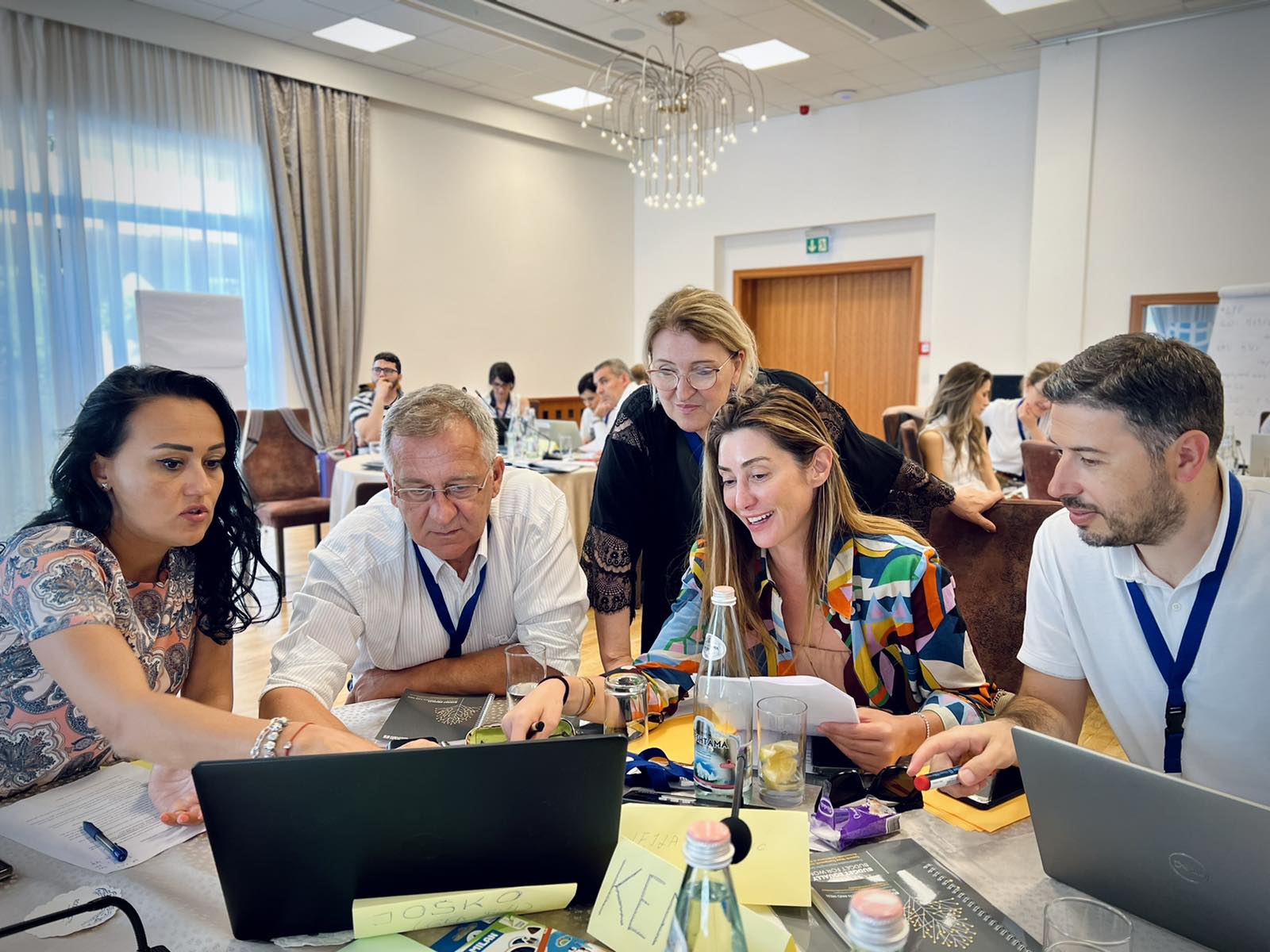
Gender-Responsive Governance and Leadership

Enabling governance systems is essential for the achievement of gender equality and women’s empowerment. UN Women brings women’s political participation and leadership; gender-responsive planning and budgeting; the European Union (EU) integration process of Bosnia and Herzegovina (BiH); and access to justice and rights together into this portfolio to leverage their mutually reinforcing nature.
UN Women’s work in BiH is in line with international norms and standards and relies on partnerships with the different levels of government, civil society, the international community, and members of the UN Country Team, within the framework of the UNSDCF 2021-2025.
The strategic approach under this programme component combines the work on public finance reform; increasing gender perspective in the country’s EU integration process; enabling stronger participation of women in decision making; supporting institutional commitments and accountability for the national and international normative standards and institutional and CSO dialogue.
Our Results
Continued capacity building, technical and financial support from UN Women in Gender Responsive Governance and Leadership have resulted in the following:
- 98 Members of Parliament at state and entity levels and 150 municipal councillors from 21 municipalities increased their capacities related to gender equality and gender-responsive budgeting (GRB). 17,000 civil servants have on their disposal an online course on GRB.
- Since 2012, the Budget Management Information System (BMIS) requires mandatory inclusion of GRB indicators in the programmes of all line ministries.
- The BiH Law on Gender Equality and BiH Gender Action Plan 2018-2022 note GRB as a key principle, embedding GRB in the BiH legislative and policy framework.
- As of 2022, collaboration is established with supreme audit institutions in BiH to increase their capacities and awareness on gender mainstreaming and gender responsive budgeting, and implementation of gender audits.
- Since 2020, 50 civil servants from BiH level of government have increased their capacities related to conducting gender impact assessments of laws and policies.
- As of 2020, 7 knowledge products on women’s political participation and leadership were produced and distributed to 1,000 stakeholders in BiH.
- Public discussions to build alliances around gender equality and promote political participation of women have reached more than 150 thousand people in 2020 only.
Ongoing Projects and Initiatives in BiH
Transformative Financing for Gender Equality towards more Transparent, Inclusive, and Accountable Governance in the Western Balkans
The overall objective is to improve the lives of women, men, girls and boys through systematic and sustainable gender mainstreaming at all stages of policymaking and budgetary processes. Among the
key expected project results by 2024 are: 7% of annual budget allocation to gender equality in BiH as a result of GRB work; 24 budgetary programmes that mainstream gender; 10 local governments in BiH with policies to implement GRB.
Towards the SDG Financing Ecosystem in BiH (Joint Programme with UNDP, UNICEF, UNESCO, WHO and ILO)
This JP is an essential contribution to foster dialogue and support the governments in BiH to establish systemic financing of the SDGs, enabling informed and targeted investment of public funds and the mobilisation of additional financing for sustainable development. Governments in BiH will be supported to make a rapid estimation of the costs necessary for the implementation of the SDG Framework in BiH and work on the SDG financing framework that will provide long term strategic direction.
EU Gender Equality Facility
The Gender Equality Facility (GEF) project is funded by the EU and co-funded and implemented by UN Women. The main objective of the project is to support gender institutional mechanisms in BiH to better meet and comply with international gender equality standards and the EU gender equality acquis.
See our factsheet for more information.